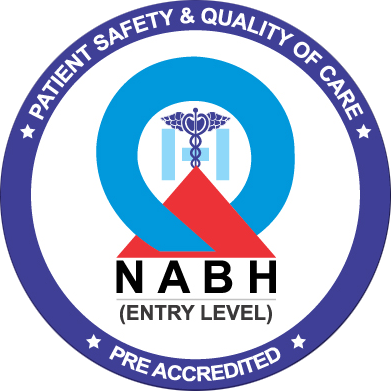
One important part of the eye that is necessary for vision is the retina. If we are aware of how the retina functions, typical problems, and potential crises, we can better understand the importance of eye health and recognize when medical assistance is needed.
The Retina and Its Functions
The thin layer of tissue at the back of the eye is called the retina. Millions of photoreceptors, or light-sensitive cells, are found within. We can see this because these photoreceptors, which include rods and cones, transform light into electrical signals that travel through the optic nerve to the brain.
- Rods are in charge of peripheral vision and low-light perception.
- Cones are in charge of color perception and the ability to see tiny details in bright light.
The retina is important to our eyesight because of its complicated structure and function, which translate visual stimuli into the images we perceive.
Common Retinal Problems
The retina is vulnerable to many problems that can limit vision, despite its significance. Here are some of the most common retinal issues include:
1. Retinal Detachment
Retinal detachment, or the separation of the retina from the underlying tissue, is the cause of an abrupt loss of eyesight. Possible symptoms include light flashes, floating objects, or a shadow that partially blocks vision. This issue must be resolved very quickly to prevent permanent vision loss.
2. Macular Degeneration
The macula, the central area of the retina that is impacted by age-related macular degeneration (AMD), provides sharp central vision.
There are two types:
- Dry AMD, which is marked by the thinning of the macula, and
- Wet AMD, which involves abnormal blood vessel creation. Central vision distortion or blurriness is one of the symptoms.
3. Diabetic Retinopathy
Diabetic retinopathy is one effect of diabetes that affects the blood vessels of the retina. A lack of treatment could lead to blindness or visual loss. Some of the symptoms are floating objects in vision, blurry vision, and black spots.
4. Retinal Vein Occlusion
This condition arises from a blockage of a retinal vein, which causes edema and bleeding. It should be examined by a physician immediately because it may result in sudden blindness. Among the symptoms include hazy vision and dark patches.
Retinal Emergencies
Certain retinal illnesses are medical emergencies that require immediate attention to prevent irreversible visual loss. Knowing the warning signs of a retinal emergency could mean the difference between maintaining your vision and losing it.
1. Sudden Onset of Floaters and Flashes
The sudden emergence of light flashes and floaters—tiny black objects that hover in the field of vision—may be signs of retinal detachment or a tear. You must be evaluated right away by an eye professional.
2. Sudden Loss of Vision
A medical emergency occurs when there is an abrupt loss of vision, whether it be partial or total. It may be brought on by retinal vein blockage, retinal detachment, or other dangerous conditions that require immediate medical attention.
3. Shadow or Curtain Over Vision
If your vision appears to be covered by a shade or curtain-like effect, you may have a retinal detachment. Getting medical care as soon as possible helps prevent irreversible vision loss.
Preventing Retinal Problems
Although it is not possible to prevent every retinal issue, some steps can help lower the risk:
- Regular Eye Exams: Thorough eye exams performed regularly can help identify retinal problems early on before they get worse.
- Handle Chronic Disorders: Taking good care of chronic conditions like diabetes and hypertension reduces the risk of developing retinal problems.
- Healthy Lifestyle: Quitting smoking, getting regular exercise, and eating a diet rich in leafy greens and omega-3 fatty acids can all help to enhance the health of your eyes.
- Protective eyewear- It is a good way to prevent retinal injuries when participating in activities that could endanger the eyes.
Conclusion
Understanding the functioning of the retina, typical problems, and emergencies is essential to maintaining great eye health. The retina is an essential component of our visual system. Consulting a retina surgeon in Indore can help diagnose and treat retinal disorders effectively. We can maintain and enhance our quality of life by recognizing the early signs of retinal issues and seeking prompt medical attention. Vision protection requires leading a healthy lifestyle and preventing retinal problems.

